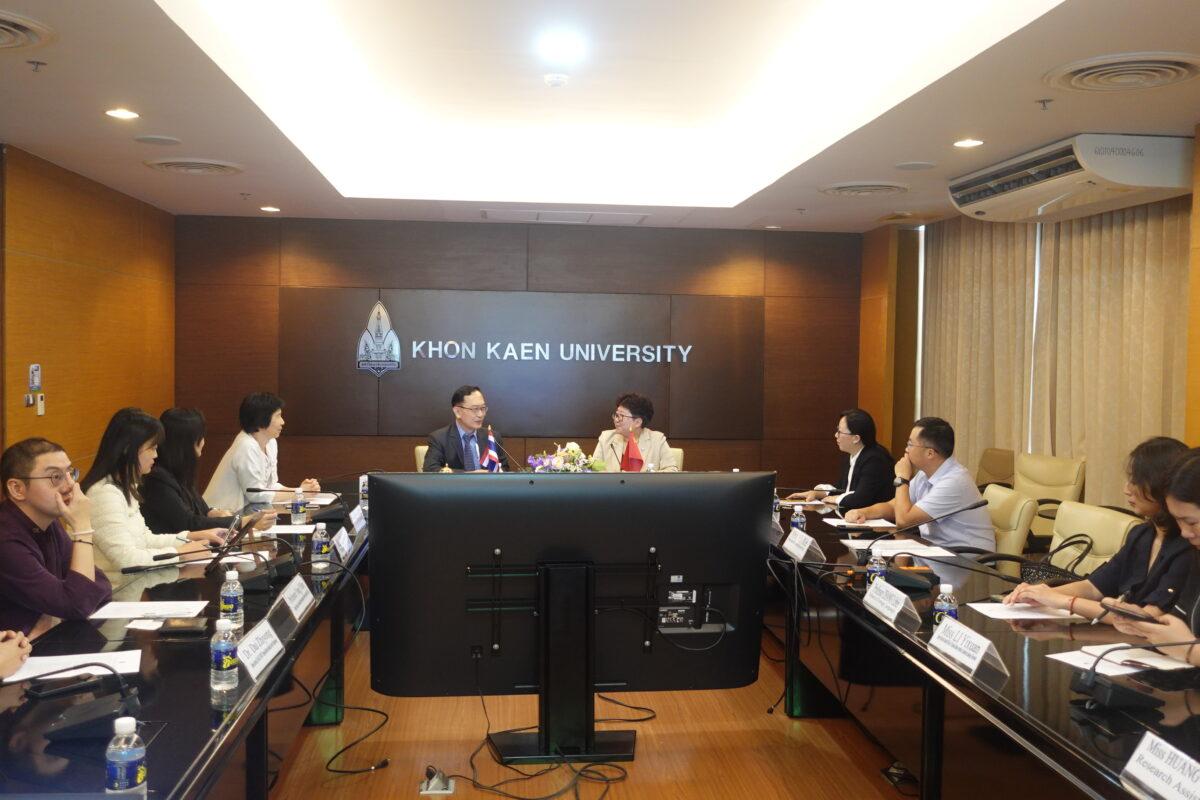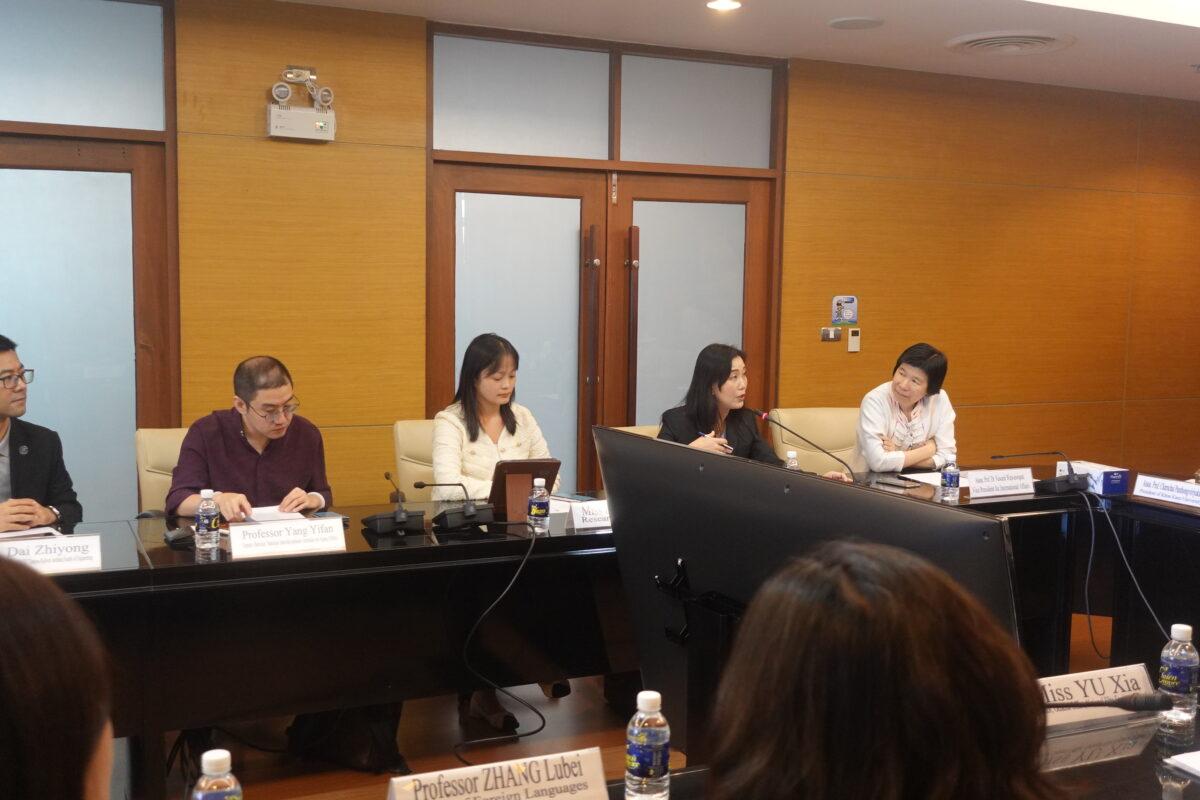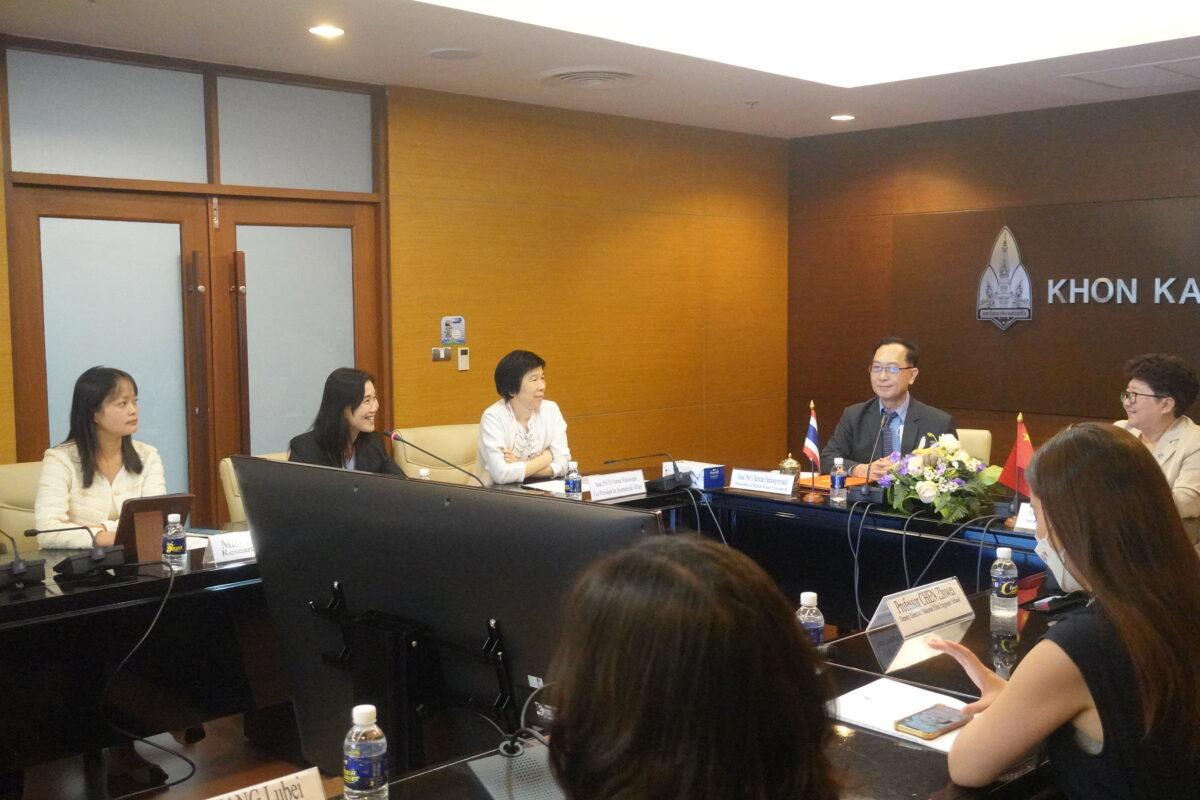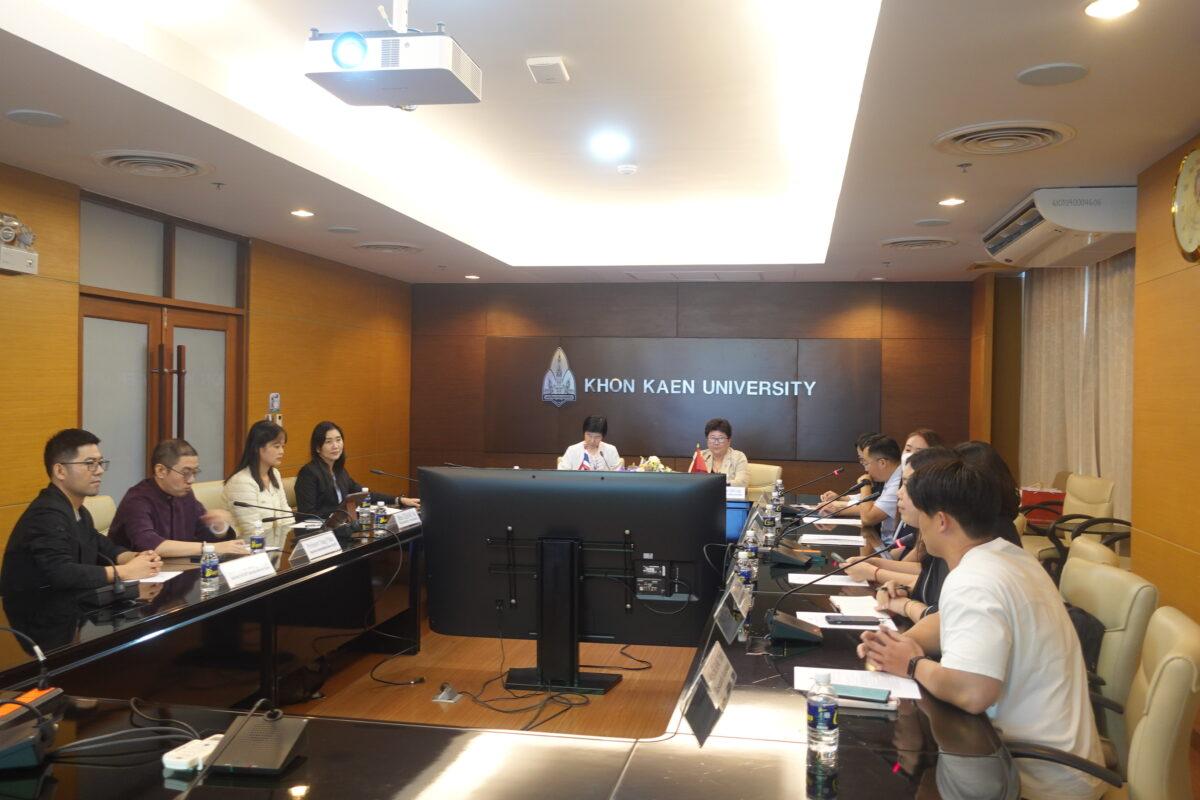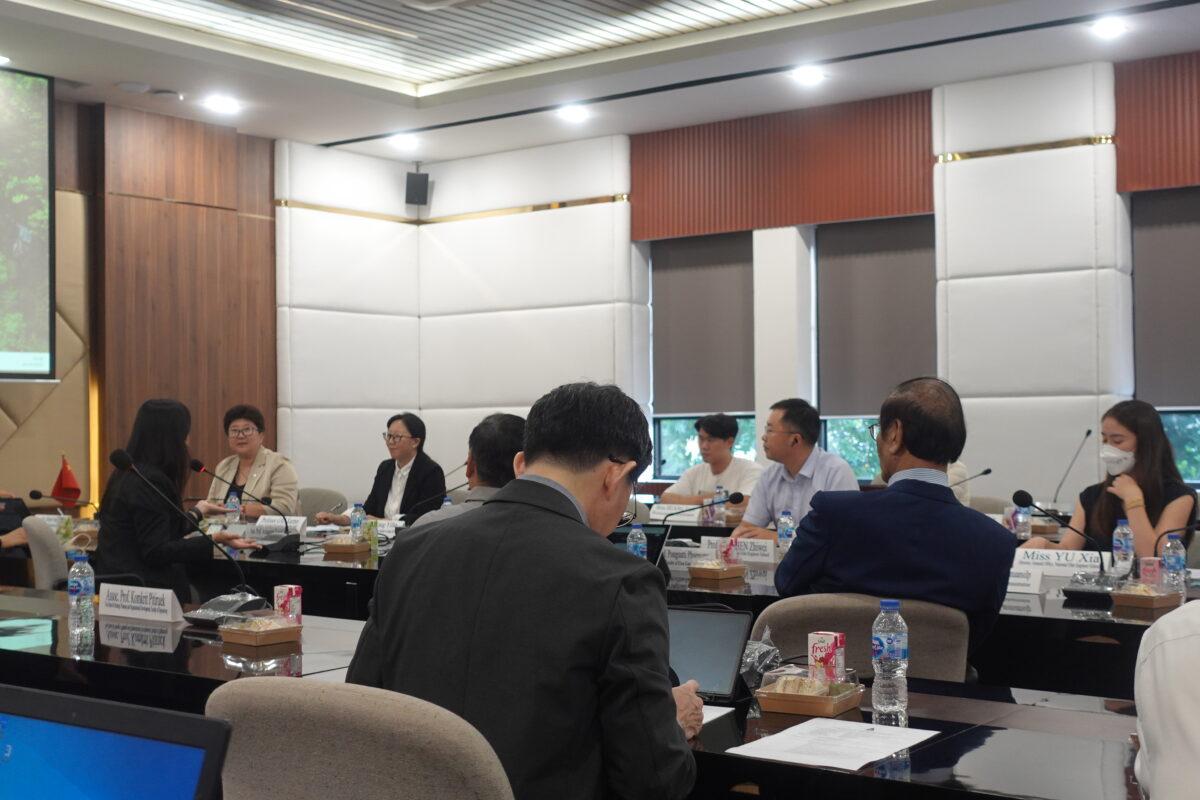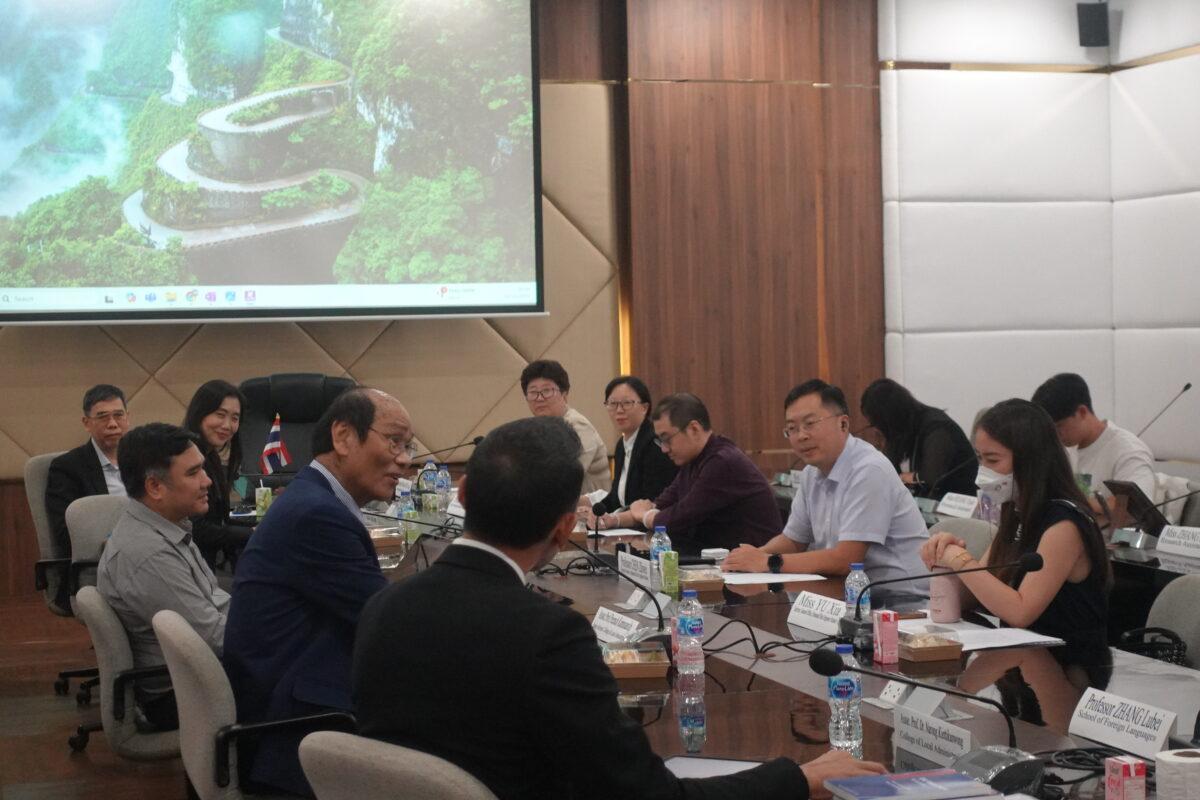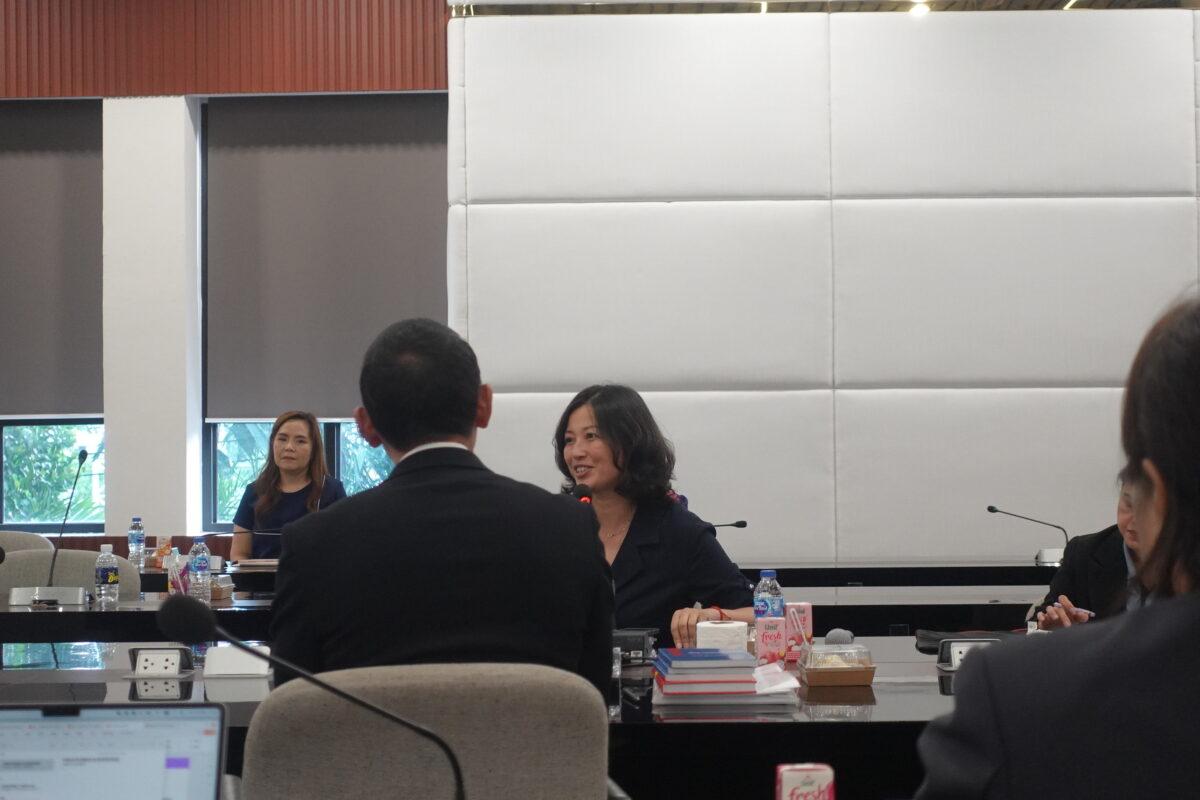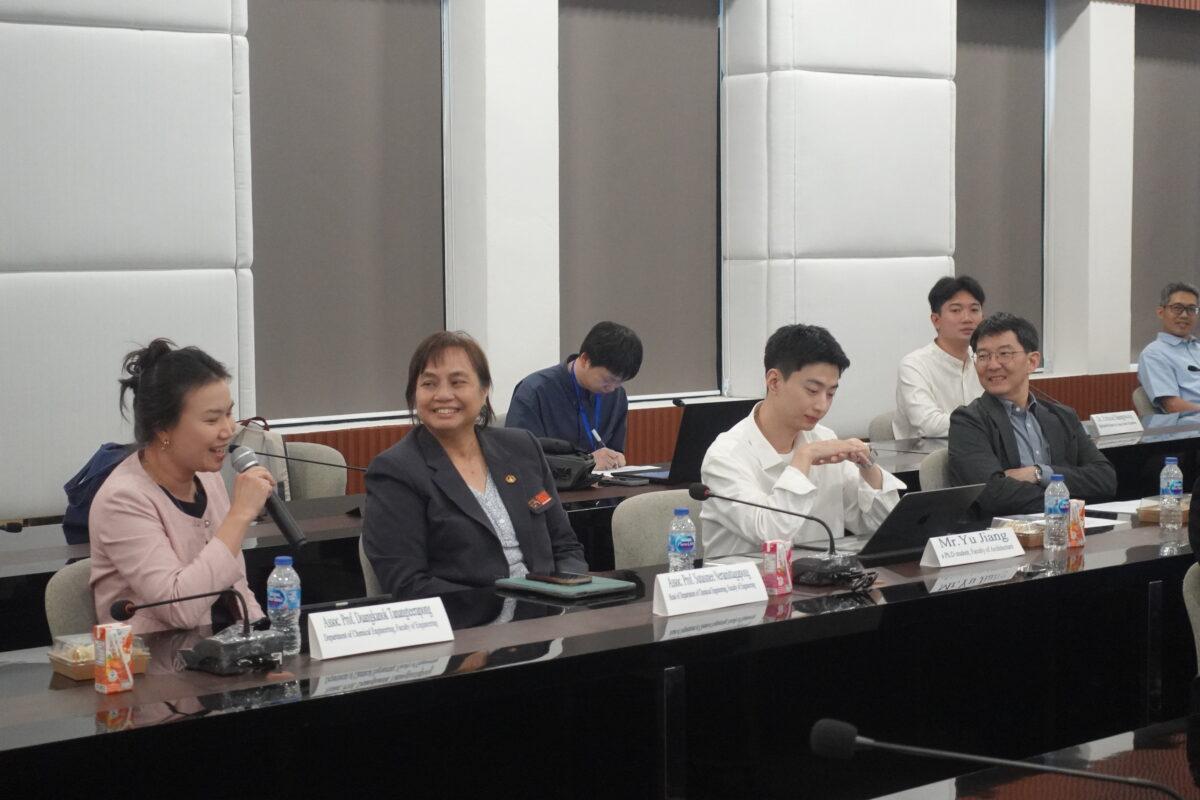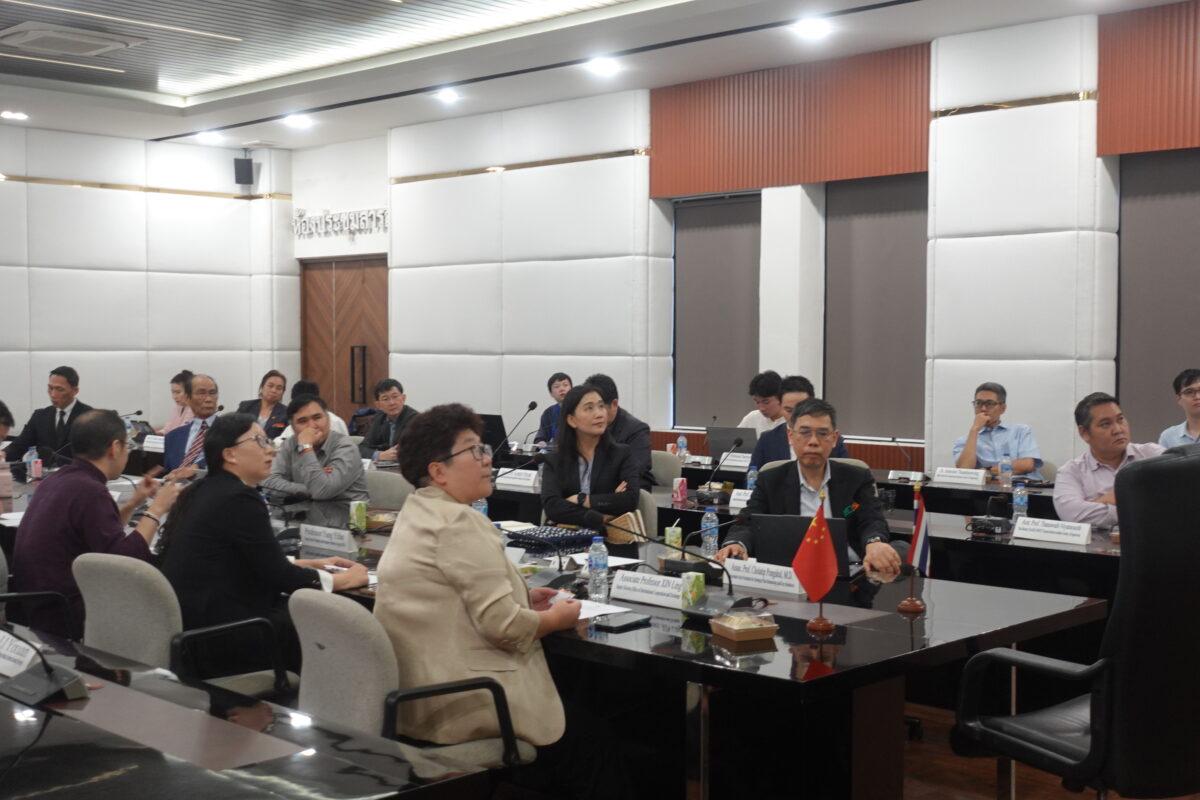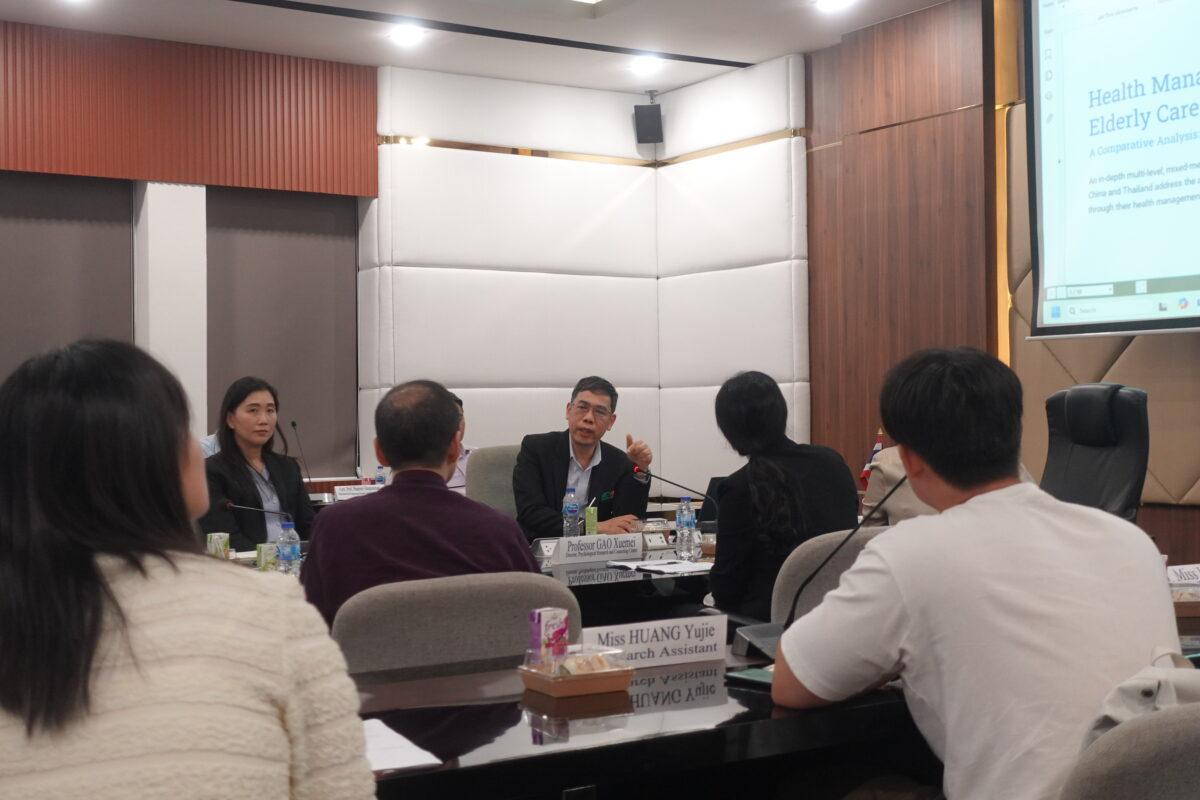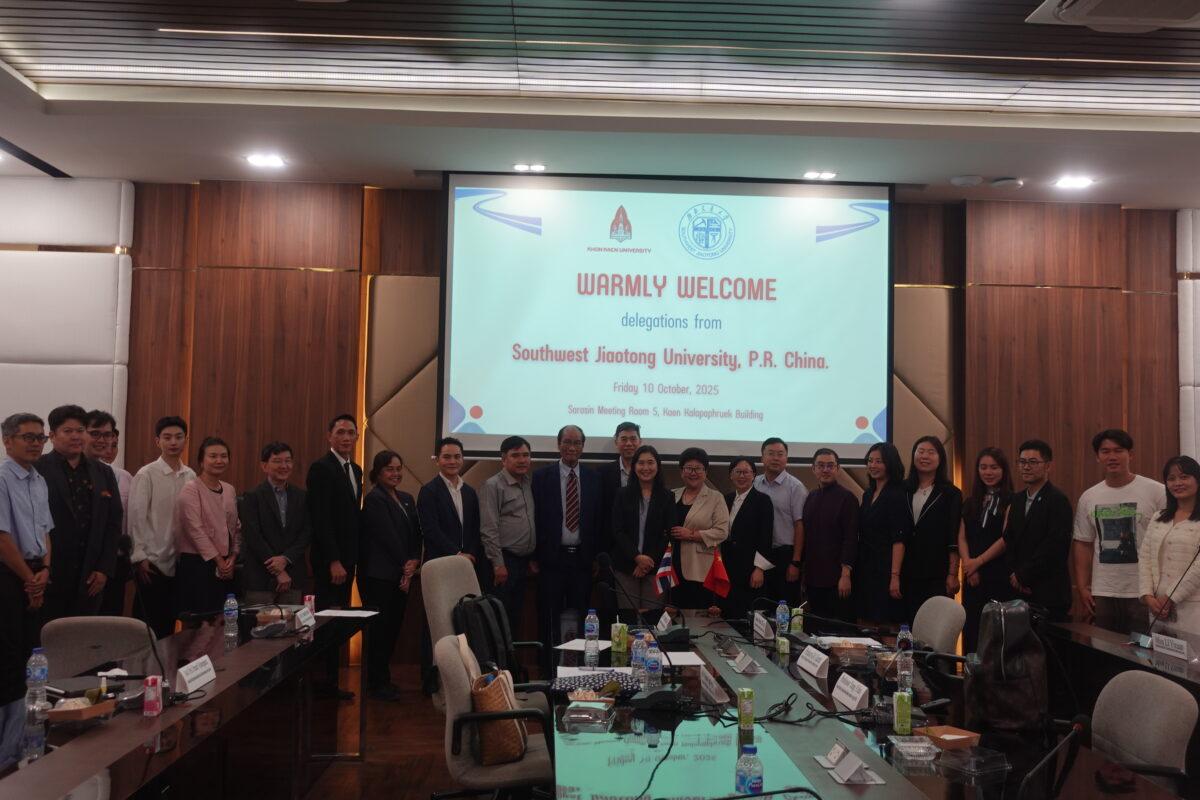Khon Kaen University (KKU) and China’s Southwest Jiaotong University (SWJTU) are expanding their academic collaboration beyond railway engineering to address the challenges and opportunities of an aging society.
On October 10, 2025, a delegation from SWJTU, led by Assoc. Prof. Xin Ling, Deputy Director of the Office of International Cooperation and Exchange, met with KKU administrators, including President Assoc. Prof. Charnchai Panthongviriyakul, M.D.President . The meeting focused on strengthening and expanding cooperation into new interdisciplinary areas.
The expanded collaboration is centered around a new initiative titled, “Developing the China-Laos-Thailand Railway Silver Economy Corridor: A Vision for a Cross-Border Wellness and Retirement Mobility Community.” This project aims to generate knowledge in areas such as engineering, medicine, business, and creative eco-tourism to address contemporary social issues.
“This project reflects a shared vision to drive the ‘silver economy’ and address the aging society challenges that both Thailand and China are facing,” said Assoc. Prof. Charnchai Panthongviriyakul, M.D.President of Khon Kaen University . He noted that the partnership is a significant step toward sustainable development.
A key proposal discussed was the establishment of a National Interdisciplinary Institute on Aging (NIIA), a joint research framework focusing on four main areas: policy-related research, empirical research, industry research, and implementation research. The institute aims to develop knowledge and policy recommendations that address the needs of the region’s aging population.
Initial pilot projects under consideration include a comparative study of Thai and Chinese elderly welfare policies, sustainable aging community planning, and research on intergenerational relationships and mental health in the digital era. The universities also discussed developing an AI-powered “Smart Weight Management Platform” to promote wellness among youth.
Assoc. Prof. Xin Ling of SWJTU stated that the collaboration provides an opportunity to exchange ideas on research for an aging society and to explore the development of the silver economy.
This new phase of cooperation builds upon the prior success of the KKU–SWJTU Tianyou Railway Institute, which has effectively implemented a high-speed rail engineering curriculum and a dual-degree (2+2) program. Both universities expressed their commitment to translating this expanded partnership into policy development and international capacity-building, aiming for a truly sustainable Thai-Chinese collaboration.
